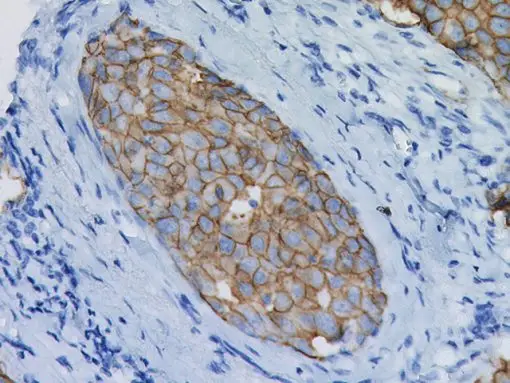Description
CD137, a constituent of the tumor necrosis factor receptor superfamily, is a
promising target for augmenting anticancer immune responses. CD137 activities in T
cells encompass the regulation of activation, proliferation, and apoptosis. CD137
facilitates the regulation of the activation of several immune cells, including CD4(+) T
cells, CD8(+) T cells, dendritic cells, and natural killer cells. Recent studies
demonstrate that the anticancer efficacy of therapeutic tumor-targeting antibodies
can be enhanced by including agonistic antibodies that target CD137. Ligation of
CD137 delivers a costimulatory signal across many immune cell subsets, indicating
that CD137 antibodies may enhance cancer therapy and have been associated with
breast cancer, melanoma, and lymphoma. Consequently, CD137 agonists signify a
viable immunotherapeutic strategy for cancer treatment.
Specifications
| Format | Concentrate, Predilute |
|---|---|
| Volume | 0.1 ml, 0.5 ml, 6.0 ml |
| Source | Mouse Monoclonal |
| By Letter | C |
| Antigen | Ectodomain of human 4-1BB recombinant protein |
| Clone | BBK-2 |
| Intended Use | RUO |
| Isotype | IgG1/kappa |
| Localization | Cell surface |
| Positive Control | Small intestine with Peyer’s patches, tonsil |
| Species Reactivity | Human; others not tested |






